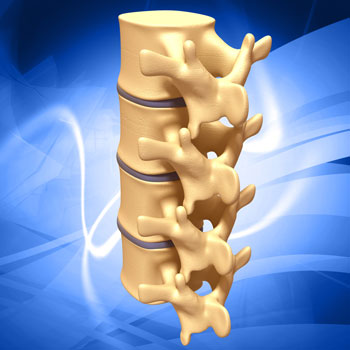The case for G2211, Medicare's visit complexity code
A Medicare-specific add-on code, G2211, is designed to address the complexity inherent to evaluation and management associated with medical care.
In 2018, CMS proposed restructuring the coding system for office and outpatient (O/O) evaluation and management (E/M) visits to increase their value and reform the documentation requirements. The changes to the O/O visits went into effect in January 2021, and similar changes to the inpatient E/M codes took effect in January 2023. These changes were accomplished by years of ACP advocacy with input directly from members and were informed by the College's ongoing participation in the American Medical Association's CPT Editorial Panel and RBRVS Update Committee. However, while ACP strongly supported these changes, we have emphasized to regulators that work remains to be done if we are to accurately describe and reflect the resources associated with primary care and certain types of subspecialty visits.
Recognizing that the revised O/O E/M codes still fell short of filling the gap, CMS finalized a Medicare-specific add-on code, G2211, in the 2021 Medicare Physician Fee Schedule (PFS), described as follows:
Visit complexity inherent to evaluation and management associated with medical care services that serve as the continuing focal point for all needed health care services and/or with medical care services that are part of ongoing care related to a patient's single, serious, or complex condition. (Add-on code, list separately in addition to office/outpatient evaluation and management, new or established.)
Unfortunately, implementation of what promised to be an important tool for primary care practices was halted by congressional action. In response to strong opposition to this code and its potential impact to the conversion factor, the Consolidated Appropriations Act of 2021 delayed its implementation until Jan. 1, 2024. This meant the code remained “bundled” and would not be separately payable. The College opposed this delay and encouraged insurers to independently provide coverage, allowing the code to be paid at the discretion of each individual carrier. With the congressional moratorium set to expire, ACP is once again providing CMS with advice on the code's implementation and utilization.
G2211 has the potential to recognize the resources required to provide comprehensive, patient-centered primary care. Implementation of this code will allow physicians to account for services like chronic disease management tracking, review of consult or lab reports, medication-related monitoring and safety outside of patient visits, and physician input at assisted living or nursing homes. As CMS has recognized, these coordinated, team-based actions take considerable physician time, yet up until this point, there has been no way to fully capture nor compensate for the resources and unique costs required to establish and maintain these longitudinal relationships. The mandated delay has allowed us to observe the impact of the E/M payment policy changes on the payment gap between primary and subspecialty care, which has been modest at best.
The challenge remains, however, that CMS’ calculations show that G2211 would result in exceptionally adverse budget neutrality adjustments for all specialties. Budget neutrality mandates require increased spending in any area to be offset by decreases elsewhere. For decades, this requirement has pitted medical specialties against one another, and the agency's utilization assumption presents a real hurdle in medicine's ability to take a step toward restoring the backbone of health care and reinvigorating primary and subspecialty care collaboration. We agree that G2211 could fill the gap in the existing coding structure but believe CMS’ 2021 projection that G2211 would be reported with 90% of O/O E/M visits is sorely inflated and should be reexamined. As some E/M visits are acute, distinct encounters, we do not expect every visit would satisfy G2211's continuous care requirement. An equivalent in the surgical setting is modifier 22, appended when a procedure exceeds the normal range of complexity, which is only used in specific instances where the procedure is unusually challenging.
CMS should reevaluate the utilization estimates, including an examination of actual utilization of similar codes implemented in recent years, such as chronic care management (CCM) and transitional care management (TCM) services, which has been lower than expected. Although two-thirds of Medicare beneficiaries are eligible for CCM services, these codes accounted for only 2.3% of all claims. Similarly, TCM services were only found on 9.3% of claims for the total eligible population of 22%. This report suggests that a more accurate estimate for G2211 would be far below CMS’ original projection.
The inflated expectations of G2211's utilization, and its impact on the overall budget, have unnecessarily put specialties at odds and made more difficult the shared mission of providing accessible, affordable, comprehensive, and equitable care. As the dust settles and we look to the reinstatement of G2211, ACP continues to stress CMS’ 2021 finding that the “time, intensity, and [practice expense] involved in furnishing services to patients on an ongoing basis … are not adequately described by the revised office/outpatient E/M visit code set.”
In considering modifications to G2211, we strongly urge CMS and other stakeholders to prioritize the immense need to address the downstream impacts of regulatory and congressional pressures. The decades-long failure to invest in internal medicine physicians and those providing primary care has negatively impacted more than physician salaries. Access to coordinated primary and subspecialty care services is a major equity issue. Internal medicine physicians play an integral role in establishing (and maintaining) these coordinated relationships, and failure to appropriately compensate them for the work, time, and resources required jeopardizes access.
As evidenced by the National Academy of Sciences, Engineering, and Medicine's report on Primary Care in America, access to high-quality primary care positively impacts health outcomes—and it is often in the context of these continuous relationships that social drivers of health are identified and addressed. In our July 2022 position paper titled “Reforming Physician Payments to Achieve Greater Equity and Value in Health Care,” published in Annals of Internal Medicine, ACP expounds on these recommendations, and we encourage CMS to collaborate with the physician community to better understand how implementation of G2211 can further advance care.
While there is no shortage of nationwide issues impacting our daily lives as physicians, patients, or both, we cannot underestimate the critical importance of investing in internal medicine physicians and those providing primary care. As we approach CMS’ 2024 Medicare PFS rulemaking cycle, we look forward to working with the agency and stakeholders to reform the implementation of G2211.





